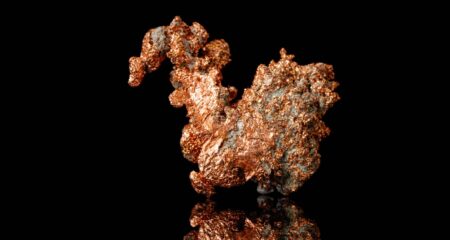
South Africa’s embattled president, Jacob Zuma, is staying put.
The writing appeared to be on the wall for Zuma, 74, as recently as last week, with more than 100 ANC veterans joining labour unions, civil rights groups and opposition parties in demanding his ouster after repeated leadership lapses.
The calls for him to go grew louder following the release of a damning graft ombudsman’s report implying that he allowed members of the Gupta family, who are his friends and in business with his son, to influence cabinet appointments and the awarding of state contacts.
Then, Zuma showed his defiance at an ANC rally on 5 November when he said he wouldn’t resign, and this week it became apparent why: he still commands the loyalty of most of the ANC’s top leaders, many of whom rely on his largesse to retain well-paying cabinet posts and government jobs, and lawmakers who answer to the party’s bosses rather than the electorate. On Thursday, the ANC used its 62% majority in parliament to defeat a motion of no-confidence in Zuma filed by the Democratic Alliance.
“Because it is everybody else calling for the removal of the president, the natural reaction is to close ranks,” ANC secretary general Gwede Mantashe said in an interview on Thursday. “Once it becomes an obsession, it closes space in the ANC. That actually disadvantages the ANC in terms of having space to debate that issue.”
That means Zuma’s duel with finance minister Pravin Gordhan over control of the treasury will probably drag on, whittling away at investor confidence and undermining South Africa’s bid to avoid a credit-rating downgrade to junk.
While the markets were buoyed by a 31 October announcement that fraud charges were dropped against Gordhan, prosecutors say they’re still investigating him over allegations that he set up an illegal special investigative unit in the tax agency. The minister says the probes are politically motivated.
Over the next couple of weeks, some ANC leaders will snipe at the public protector’s report on the role of the Gupta family and possibly challenge it in court, according to Ralph Mathekga, a political analyst at Mapungubwe Institute of Strategic Reflection, a Johannesburg-based research group. That may give the Zuma camp time to cement its power over the party and control the succession race as he prepares to step down as party leader in December next year, he said.
Zuma’s seven-year tenure as president has been characterised by misrule and scandal, and his administration’s record has been dismal — the economy is barely growing, 27% of the workforce is unemployed and students demanding free education have wreaked havoc on university campuses. Yet he’s proved a master of the political equivalent of the rope-a-dope boxing tactic: absorb punishment, clench and then counter-punch when his opponents grow weary.
Investor confidence
In December, his decision to fire Nhlanhla Nene as finance minister and replace him with a little-known lawmaker went awry, triggering a run on the rand and the nation’s bonds.
In March, the constitutional court found that he violated his oath of office by refusing to repay taxpayer money spent on his private home.
In municipal polls in August, the ANC suffered its worst electoral performance since the end of apartheid in 1994, losing control of three key cities, including Pretoria and Johannesburg.
Then a week ago, after Zuma aborted a court challenge to stop publication of the graft ombudsman’s report, it was released, with 355 pages of allegations about the cozy links between the president and some of his ministers and the Gupta family.
The ensuing public outcry has so far come to naught. Zuma and the Guptas deny wrongdoing.
“If a man can survive 15 scandals, and lose about 20% of his power, in relative terms he’s still strong,” Mathekga said. “One of the weaknesses that Zuma thrives on is that his critics have no commitment to do the hard political work. They have commitment to talk. They don’t want to go to the ground.”
The ANC’s national working committee this week started a fightback against the graft ombudsman report, calling it “inconclusive” and saying that it’s premature to call for Zuma’s resignation. While it backed the public protector’s call for a judicial commission to probe whether there had been any wrongdoing, that process will take at least six months.
In parliament, ANC lawmakers voted as a block to reject the motion of no confidence in Zuma. Even Jackson Mthembu, the ruling party’s chief whip who last month called on the entire ANC leadership to resign, accused the opposition of political posturing.
While the ANC’s national executive committee, one of the party’s top decision-making bodies, will discuss Zuma’s travails later this month, it’s also unlikely to censure the president, according to Dirk Kotze, a politics professor at Unisa.
“The majority of its members are either ministers or members of parliament and many of them believe that their position is almost entirely dependent on his approval of them,” Kotze said by phone. “It is not only about political loyalty toward him but also about protecting their own interests in the ANC.” — (c) 2016 Bloomberg LP




